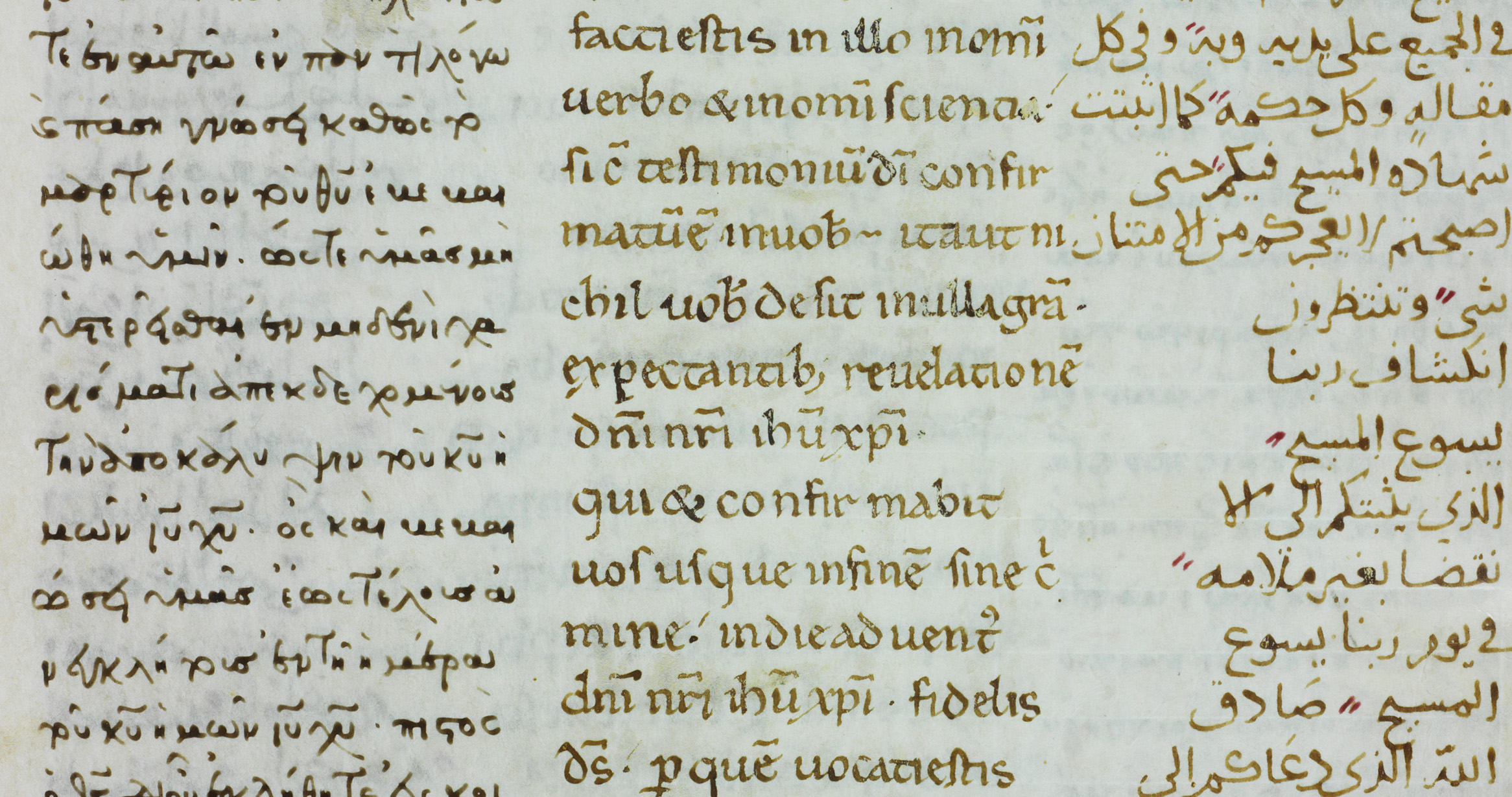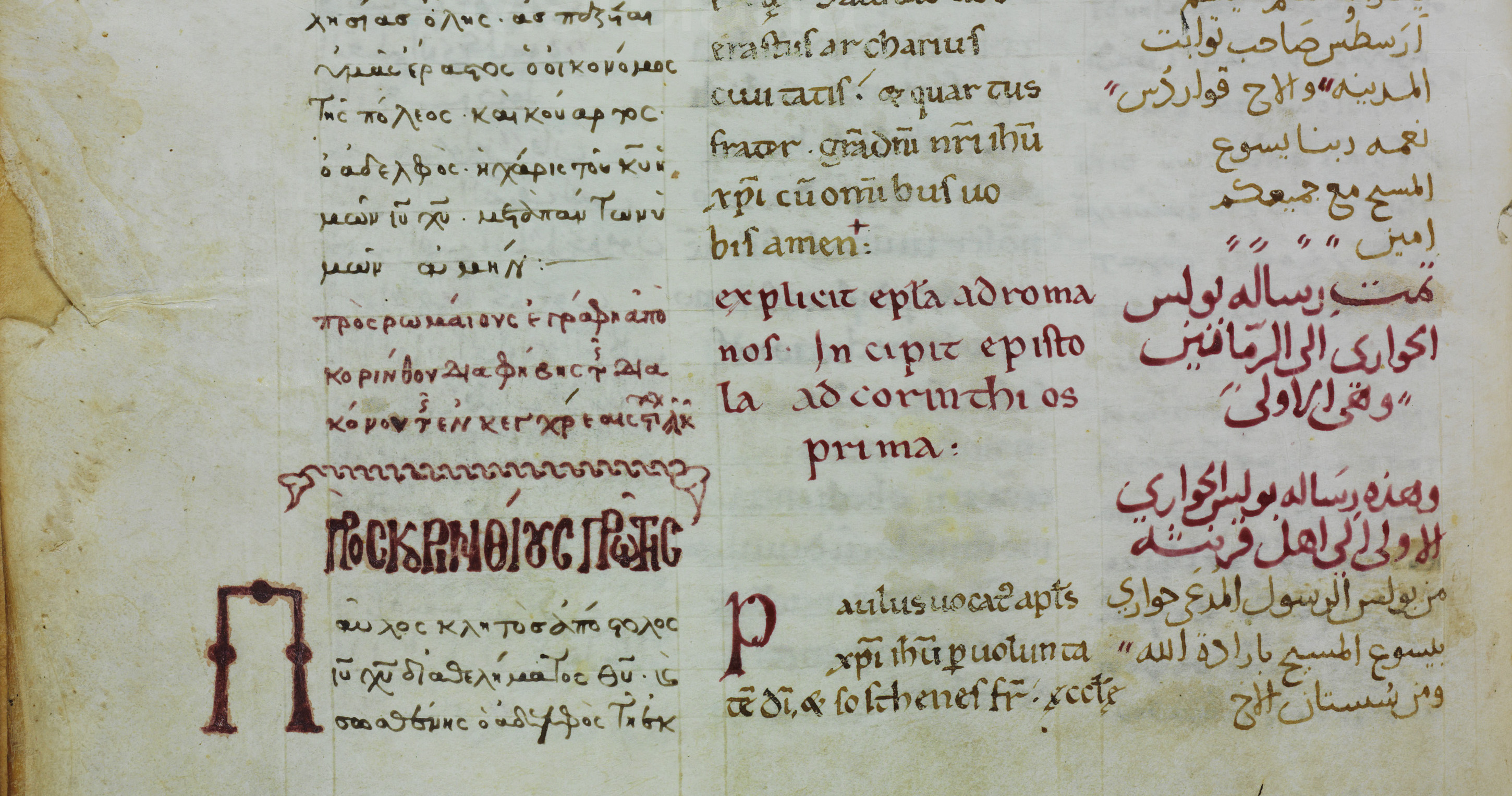About HumaReC
How is Humanities research reshaped and transformed by the digital rhythm of data production and publication ? HumaReC has investigated this question using the test-case of the edition of four Pauline letters in a unique trilingual Greek, Latin and Arabic New Testament manuscript. This editing research has been done in the framework of a 24 months SNSF, grant n° 169869, 2016-2018.
Team : Sara Schulthess, Martial Sankar, Anastasia Chasapi and Claire Clivaz (PI).
Continuous Publishing & Peer-Review
Humanities research is reshaped and transformed by the digital rhythm of data production and publication. The challenge of the project has been to develop a new model of Humanities research that affords a continuous publication of data and analysis as well as the evaluation of experts . In this perspective, HumaReC has offered several levels of publications.
The manuscript viewer presents images and transcriptions, with four Pauline letters fully transcribed.
The research blog has regularly provided postings of research results and input regarding the manuscript and the digital development of the project.
Forum: a forum has allowed reactions and discussions about the published data.
The web book offers a completely new format for the Humanities: written by Sara Schulthess, with contributions of Martial Sankar and Anastasia Chasapi, it presents some research results of the project.
Manuscript Viewer
.jpg)
Marciana Gr. Z. 11 (379) contains the Acts, the catholics letters and the Pauline letters in Greek, Latin and Arabic. This is the only trilingual Greek, Latin and Arabic manuscript of the New Testament that we know about. It was made most likely in Sicily in the 12th century.
About us
HumaReC was a SNSF 2016-2018 project, grant n° 169869, developed at DH+, Swiss Institute of Bioinformatics by an interdisciplinary collaboration between Digital Humanist researchers and researchers in Bioinformatics and computer science.
Team: Sara Schulthess | Anastasia Chasapi | Martial Sankar | Claire Clivaz (PI)
Credits & Collaborations
The SNSF HumaReC project has proudly collaborated with the Marciana Library in Venice, the EU consortium Transkribus, and the editorial team EVT.




